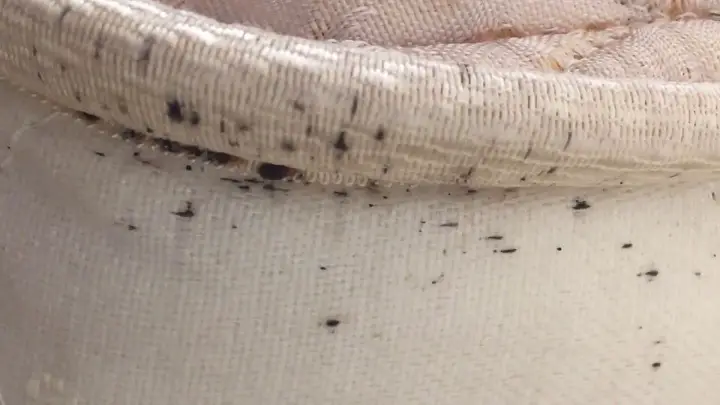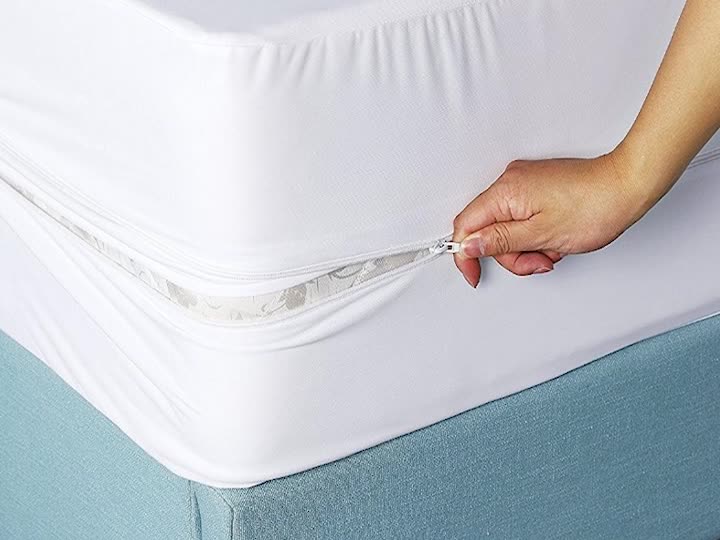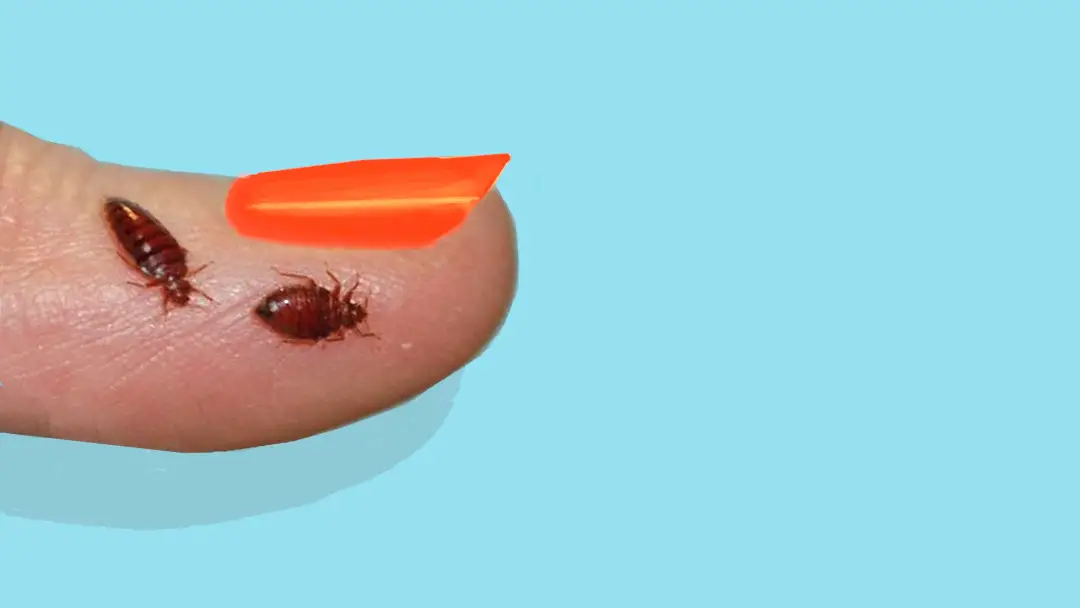Bed bugs are one of the most dreaded pests that can infest a home. These tiny insects can cause a great deal of discomfort, irritation, and anxiety as they bite and feed on human blood. Unfortunately, one of the most common ways that bed bugs are introduced into a home is through travel. Bed bugs can hitchhike on luggage, clothing, and other personal items, and can easily make their way into your home if you're not careful.
If you're planning a vacation, it's important to take steps to prevent bed bugs from coming home with you. Whether you're staying in a hotel, Airbnb, vacation rental, or other type of accommodation, the tips in this article will help you keep bed bugs at bay and ensure a pest-free return home.
First of all, bed bugs are serious business
Bed bugs are not just a nuisance, but can pose significant health risks and negatively impact a person's quality of life. They can give us:
- Allergic reactions: For some people, bed bug bites can trigger an allergic reaction, resulting in symptoms such as swelling, redness, and severe itching.
- In severe cases, anaphylaxis, a life-threatening allergic reaction, can occur. Although anaphylaxis from bed bug bites is rare, those with a history of severe allergic reactions should take extra precautions to avoid bed bugs.
- Anemia: Bed bugs feed on human blood, and severe infestations can lead to a significant loss of blood over time. This can result in anemia, a condition in which the body does not have enough red blood cells to transport oxygen throughout the body. Anemia can cause fatigue, weakness, and shortness of breath.
- Skin infections: Scratching bed bug bites can break the skin, making it more susceptible to infection. Bed bugs can carry bacteria that can cause skin infections, such as impetigo and ecthyma. These infections can be serious and may require medical attention.
- Poor mental health: The presence of bed bugs can have a significant impact on a person's mental health. The stress of dealing with an infestation, the fear of being bitten, and the stigma associated with bed bugs can all contribute to anxiety, depression, and insomnia. Studies have shown that people with bed bug infestations are more likely to report poor mental health and a lower quality of life.
In addition to these health risks, bed bugs can also lead to social isolation and financial hardship. The stigma associated with bed bugs can cause people to avoid those who have had an infestation, leading to social isolation.
"I scoured a slew of travel sites before booking, so I'm good"
You might think that travel review sites would give you a heads-up about unwelcome hotel guests, but they can be unreliable. This is, in part, because bed bug infestations come and go. A hotel with a clean reputation yesterday may be crawling with the little critters tomorrow. Conversely, a shiver-inducing review may no longer be relevant.
If you've booked a host via Airbnb based on "terrific" reviews, you might want to take a peek at this account.
"But I stay at quality joints"
It's a mistake to assume that bed bugs only hang out at the No-Tell Motel. Luxury hotels are every bit as susceptible.

You can't tell whether a place has them based solely on cleanliness — the buggers can thrive anywhere there are cracks, crevices and a revolving cast of houseguests.
If you're thinking, "Hey, there should be some kind of bed bug registry you can check, and a way to also report bed bug sightings," well, there is. Not surprisingly, it's called Bed Bug Registry. You can check and report sightings at any public space — hotels, college dorms, hospitals, movie theaters, libraries. It's worth checking out potential hotels to see if any you're considering made the "B" list.
And take along this handy bug identification card so you'll recognize the enemy:

"I still feel okay with my choice"
Great, but even with the best intentions, research and foresight, you should still check out the room for the little buggers before you unpack. Here's a step-by-step:
- Put your bags down in the center of the floor or, better yet, on the bathroom floor or in the bathtub. This sounds weird, but those spots are less likely to harbor bugs. Don't drop your luggage on the bed before you inspect.
- Start your inspection in the places bed bugs congregate — which is near their food source. That is, the bed's previous occupant. Strip the covers down to the bare mattress and check each corner and seam. (A credit card is great to split seams apart.) Use your flashlight for illumination. Check the surface of the sheets.
- You're looking for dark spots about the size of a pinhead that are — gross alert — bed bug poop. You might also see rusty or reddish-brown stains caused by crushed bugs; tiny eggs or eggshells; or pale yellow skins left behind by molting bugs. You may even spy some brazen creepy crawlers themselves.
- If you can pull the bed away from the wall, do it. Bed bugs flatten themselves between furniture and the wall to escape daylight. Use your flashlight to check inside night table drawers.
- Finally, check other possible hangouts, such as upholstered chairs and couches, the luggage rack (other travelers may have imported bugs in their luggage) and closet shelves. Even the curtains if there are any.
If you're at all suspicious, hightail it out of the room and report it to management. Hotels that are mid-range and above should have quality controls in place, such as more careful cleaning services and inspection between hotel guests. They should have a professional pest control company in their rolodex, ready to swoop in at the first sign of infestation.
Booked via Airbnb? You should do the same series of checks. If you do find any buggers? Their terms of service read as follows: "Any bookings will be made at the guest's own risk."
More bed bug detection and prevention for travelers
There are several strategies you can use to severely minimize the risk of encountering bed bugs and avoid bringing them home.
Do your research
Before you travel, research the area where you will be staying to see if it has a history of bed bugs. Check for recent negative reviews or news articles about bed bug infestations in any hotels or short-term rentals you're interested in. Then:
Pack with sealable bags
Pack your clothes and belongings in sealable plastic bags or luggage with tight-fitting zippers to prevent bed bugs from hitching a ride.
Use a luggage liner
You can also use a luggage liner for an additional barrier preventing bed bugs from getting into your luggage.
Use bed bug repellent
Bed bug repellent sprays and powders can be applied to your luggage and clothing before you leave on your trip.
Inspect the new room for bed bugs
Important: when you first enter the hotel room, keep your luggage off the floor and on top of a hard surface or a luggage rack. Bed bugs are less likely to be on hard surfaces and are more commonly found on soft surfaces like mattresses, bed frames, and upholstery.

- The first place to check for bed bugs is of course the bedding. Start with the sheets, mattress pad, and pillows. Look for any small, rust-colored stains or spots on the sheets and pillowcases, as well as any small black or brown specks. These could be signs of bed bug fecal matter or shed skin. You can also look for actual bugs, which are about the size and shape of an apple seed.
- Inspect the mattress: Lift the mattress and inspect the seams, tags, and crevices for signs of bed bugs or their fecal matter. You can use a flashlight to help you see in dark crevices. Pay particular attention to the corners and edges of the mattress.
- Check the headboard: Bed bugs are often found in the headboard, particularly in the seams and crevices. Use a flashlight to inspect the headboard thoroughly.
- Look for other signs: Bed bugs can be found in other areas of the room as well, such as in the furniture, curtains, and carpet. Check these areas for signs of bed bugs or their fecal matter.
Use a bed bug mattress encasement

Consider using a bed bug-proof mattress encasement on your home mattress to prevent bed bugs from infesting your bed.
Use a luggage rack
Keep your luggage off the floor and bed by using a luggage rack or placing it on a hard surface like a desk or dresser. If you have to get creative, you can even consider hanging luggage on the wall.
Avoid unpacking your clothing
If possible, try to keep your clothing in your luggage and avoid unpacking your clothes into drawers or closets.
When back home, immediately wash all your clothes
When you return home, wash all your clothes in hot water and dry them on high heat for at least 30 minutes to kill any bed bugs that may have traveled with you.
Don't be afraid to call a professional
If, despite all your efforts, you suspect you have brought bed bugs home with you, don't try to tackle the problem on your own -- it's necessary to hire a professional exterminator to assess and treat the infestation. You should still wash all infested items, clothing, and linens in hot water and dry on high heat to kill as many bed bugs as possible. You can place infested items in a sealed plastic bag and put them in the freezer for a few days to kill the bugs.
 It's All Fucked Shirt $22.14 |
 |
 It's All Fucked Shirt $22.14 |

